Donald Trump ban: From Ceausescu to Putin, the most controversial state visits to the UK
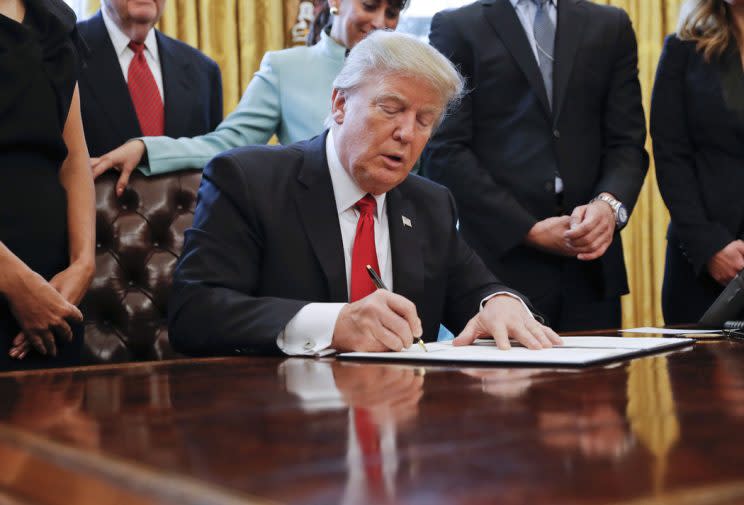
More than a million people have signed a petition asking the government to call off Donald Trump’s state visit to the UK.
The new president has provoked anger across the world by introducing a ban on nationals from seven Muslim-majority countries.
Labour leader Jeremy Corbyn and Liberal Democrat leader Tim Farron have led calls for the reality TV star to have his invite revoked.
Theresa May, fresh from her visit to the U.S. to meet Trump, has faced fierce criticism after failing to condemn the policy in strong enough terms.
However, while Trump may be presenting fresh problems to both airport security guards and diplomats, he is not the first world leader to provoke controversy.
From protesters toppling an effigy of George W Bush to demos against China’s human rights record, state visits to the UK have had their fair share of controversy.
Here are some notable examples…
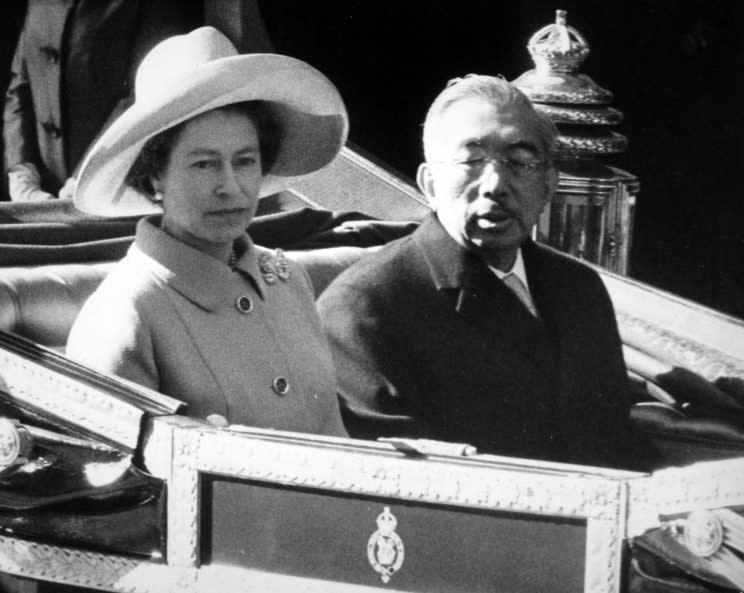
1971 — Japan’s Emperor Hirohito
Emperor Hirohito, Japan’s wartime head of state, made his first state visit to Britain in 1971, provoking ire from former prisoners of war, who protested by standing in silence as his carriage drove past.
Some turned their back on the emperor and wore red gloves to symbolise war deaths while others whistled the popular Second World War march, Colonel Bogey.
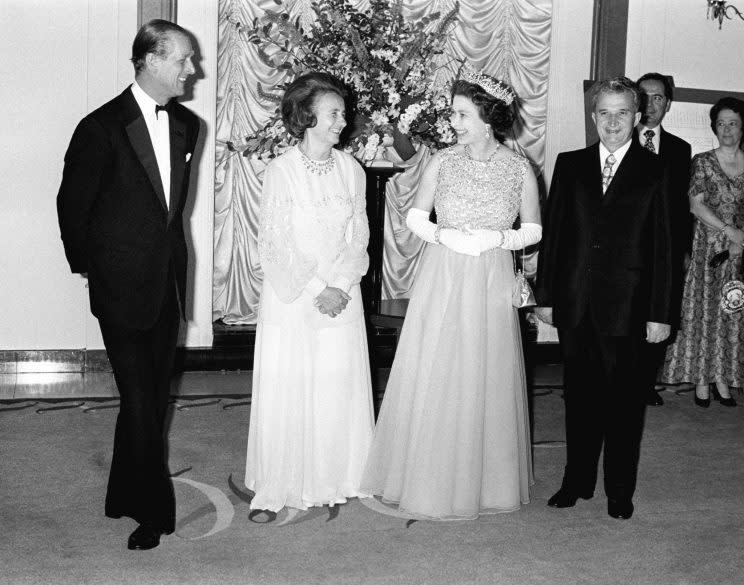
1978 — Romania’s Nicolae Ceausescu
The first state visit by a Communist head of state to the UK, dictator Nicolae Ceausescu was particularly notorious, with Romania considered the most corrupt and oppressive of the Soviet Union’s Cold War satellite states.
The Queen took drastic steps to avoid spending time with Ceausescu any more than necessary, according to royal author Robert Hardman.
“While walking her dogs in the Palace gardens, she spotted Ceausescu and his wife Elena heading in her direction. As the Queen told a lunch guest some years later, she decided the best course of action was to hide behind a bush rather than conduct polite conversation,” he wrote.
MORE: Scientists going ‘rogue’ on Twitter in response to Donald Trump
MORE: Trump ban: What are the UK’s biggest ever petitions and were any successful?
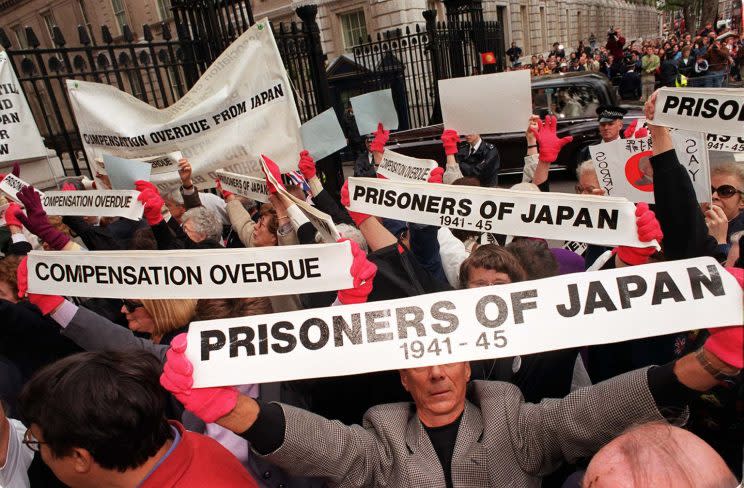
1998 — Japan’s Emperor Akihito
Just like his father did in 1971, Akihito met obvious hostility on London’s streets from British prisoners of war. Former PoWs symbolically turned their backs on him, while others jeered. Addressing the state banquet, Akihito spoke of his “deep sorrow and pain” over the suffering inflicted by his country during the war, but did not apologise for the treatment of prisoners in work camps.
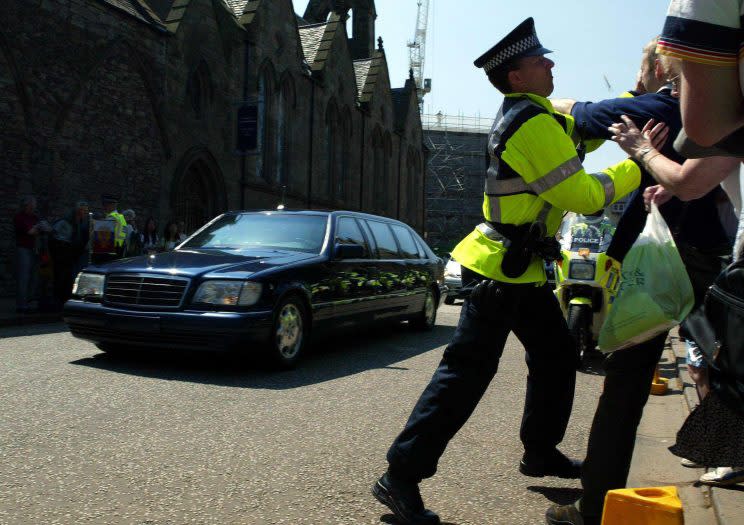
2003 – Russia’s Vladimir Putin
Mr Putin’s historic trip was the first by a Russian head of state since Tsar Nicholas I in 1843. Amnesty International and other human rights groups used the visit to highlight ongoing reports of killings, rape and torture by Russian forces in Chechnya.
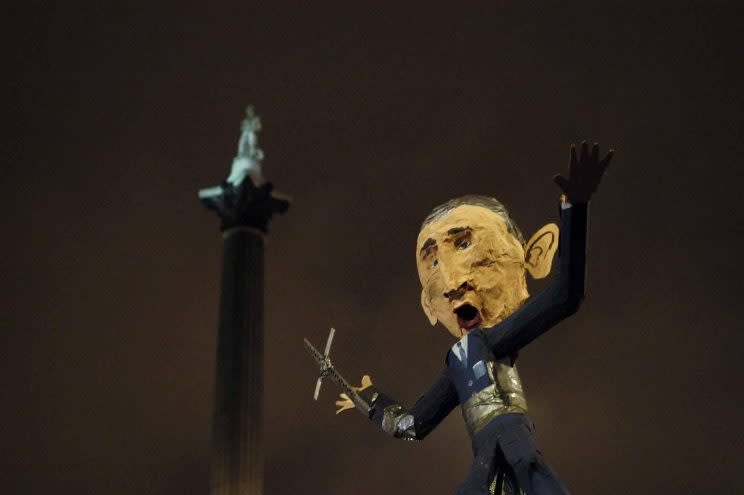
2003 — US president George W Bush
President George Bush’s state visit, while Tony Blair was prime minister, was highly controversial. Tens of thousands of people came out to protest against the American leader and the war in Iraq, amid unprecedented security for a state visit. Demonstrations throughout Mr Bush’s stay were mostly peaceful, and peaked with the toppling of an effigy of Mr Bush in Trafalgar Square, which parodied scenes of the capture of Baghdad.
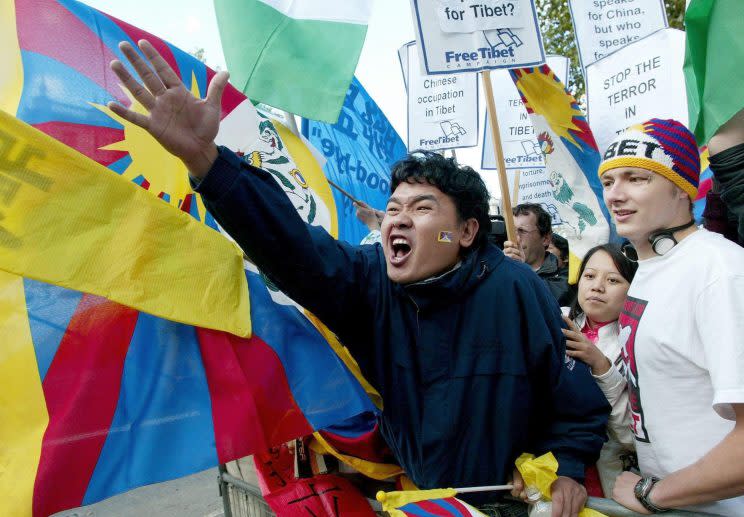
2005 – Chinese president Hu Jintao
Protests against Chinese rule in Tibet targeted Hu Jintao’s state carriage procession. The Metropolitan Police was criticised for its hardline handling of the peaceful demonstrations, and admitted following a High Court case its officers acted unlawfully when they removed protesters’ banners and flags.
The Prince of Wales, a supporter of the Dalai Lama, had been accused of boycotting a Chinese state visit to the UK in 1999 by failing to attend the return banquet held for then-president Jiang Zemin. This time, during Hu Jintao’s stay, Charles carefully side-stepped the issue by being out of the country on a tour of the U.S. on the night of the official dinner. He did not meet Mr Hu on the remaining two days of his visit.
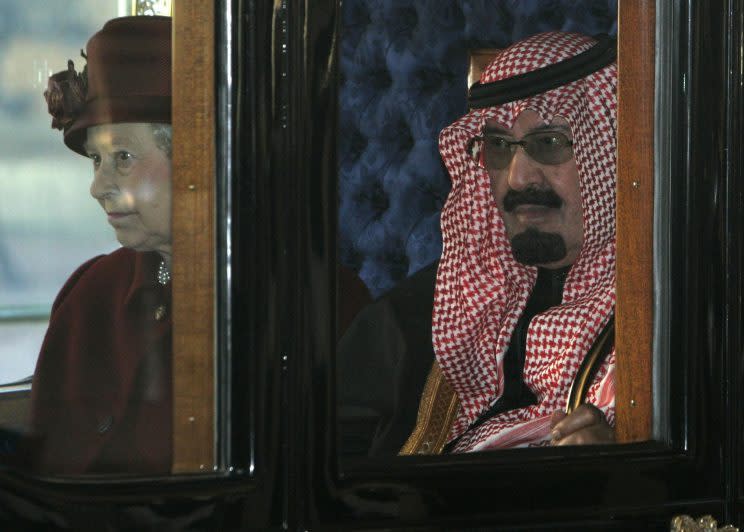
2007 – Saudi Arabia’s king Abdullah
The first state visit by a Saudi king to the UK for 20 years revived controversy over the regime’s abuse of human rights and the government’s halting of a Serious Fraud Office bribery inquiry into the al-Yamamah arms deal. Tensions surrounding the trip were heightened when the king insisted in an interview Britain was not doing enough to tackle terrorism. Around 100 human rights and anti-arms trade activists jeered and shouted “shame on you” as the royal procession passed along The Mall in central London.
2015 – China’s President Xi Jinping
Protesters attempting to highlight human rights violations clashed with pro-China supporters during a procession welcoming Chinese president Xi to the UK. Scuffles broke out between the two groups after the police perimeter set up for protesters was ignored by both sides. But thousands of supporters also lined The Mall to welcome Xi Jinping with flags, T-shirts and hats — provided by the Chinese embassy.

 Yahoo News
Yahoo News 


